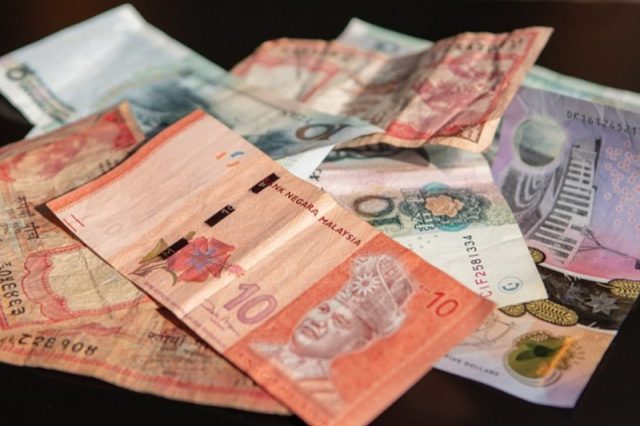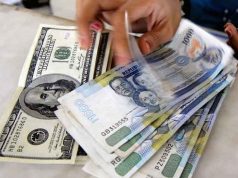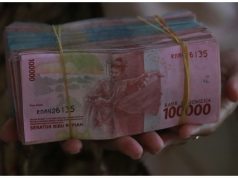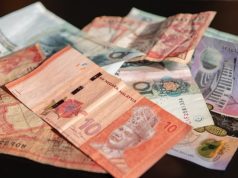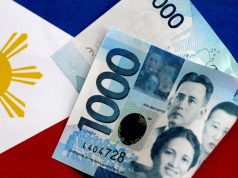- Ringgit steady after Q3 GDP meets estimates
- Stocks mixed: Indonesian equities down for fourth day
- Rupiah hovers near three-month low
Asian currencies found some support on Friday after a volatile past few sessions, with the Singapore dollar and Thai baht creeping higher, while Malaysia’s ringgit held its ground despite a slowdown in growth in the third quarter.
Stocks in the region were a mixed bag with shares in Indonesia <.JKSE> losing 1.3% to fall to their lowest since early August, while those in the Philippines <.PSI> advanced 1.6% breaking a seven-day losing streak.
Emerging market assets have been under pressure since early last week on the view that U.S. President-elect Donald Trump’s proposed tariffs could further stoke inflation which could mean fewer Federal Reserve rate cuts.
“Optimism that was initially sparked by Fed easing bets around the middle of the year have largely evaporated,” DBS analysts said.
“Against this challenging backdrop, scope for Asia central bank easing has become more restrained while investor sentiment on local currency bonds/rates have also become more muted.”
Malaysian ringgit <MYR=> and Thai baht <THB=TH> have lost 3% and 3.8%, respectively, since Nov. 5 as their open, trade-reliant economies, particularly with China, make them vulnerable to any tariff-related headwinds.
On the day, the ringgit was steady while stocks in Kuala Lumpur <.KLSE> inched lower after third-quarter economic growth came in line with expectations but slowed from an 18-month high in the previous quarter.
The central bank maintained its growth outlook for this year between 4.8% and 5.3%, and noted the U.S. elections results could usher in near-term volatility but that it was too early to speak on the impact.
The South Korean won <KRW=KFTC>, highly sensitive to the yuan and trade relations with the United States, has also lost more than 1% since the outcome of the U.S. elections became clear. It was up 0.1% on the day.
The Thai baht <THB=TH> added 0.4% on Friday while shares in Bangkok <.SETI> inched lower after a Reuters poll showed Southeast Asia’s second-largest economy would log its fastest growth in more than a year in the September quarter.
The rupiah <IDR=> hovered near its three-month low for a second consecutive day, slipping as much as 0.6% to 15,945 per dollar. The benchmark index in Jakarta <.JKSE> declined for the fourth straight session, weighed by mining and energy stocks.
Overnight, U.S. Federal Reserve Chair Jerome Powell said the central bank was not in a hurry to cut interest rates, indicating borrowing costs may remain higher for longer.
The dollar <=USD> hovered near its one-year high against a basket of currencies, eyeing a weekly gain of 1.8% – its best performance since September, if the trend holds.
“In the longer run expect the USD to fade although near-term risks are to the upside,” Maybank analysts said.
In Sri Lanka, President Anura Kumara Dissanayake’s coalition, the National People’s Power (NPP), won a majority in a snap general election. Markets in Sri Lanka were closed on Friday.
HIGHLIGHTS:
** Indonesia’s 10-year benchmark yield <ID10YT=RR> slips to 6.905%
** Indonesia Oct trade surplus less than expected
** Malaysia liberalising some foreign exchange policy to support investments, cbank says
** Malaysia dropped off U.S. Treasury’s currency manipulation “monitoring list”
| Asia stock indexes and currencies as of 0500 GMT | ||||||
| COUNTRY | FX RIC | FX DAILY % | FX YTD % | INDEX | STOCKS DAILY % | STOCKS YTD % |
| Japan | <JPY=> | -0.06 | -9.77 | <.N225> | 0.79 | 16.10 |
| China | <CNY=CFXS> | -0.08 | -1.88 | <.SSEC> | -0.35 | 13.21 |
| India | <INR=IN> | +0.00 | -1.41 | <.NSEI> | -0.11 | 8.29 |
| Indonesia | <IDR=> | -0.22 | -3.08 | <.JKSE> | -1.08 | -1.87 |
| Malaysia | <MYR=> | +0.04 | +2.55 | <.KLSE> | -0.29 | 9.72 |
| Philippines | <PHP=> | -0.02 | -5.88 | <.PSI> | 1.61 | 3.30 |
| S.Korea | <KRW=KFTC> | +0.16 | -8.01 | <.KS11> | 0.40 | -8.54 |
| Singapore | <SGD=> | +0.15 | -1.84 | <.STI> | 0.16 | 15.55 |
| Taiwan | <TWD=TP> | -0.02 | -5.58 | <.TWII> | 0.39 | 27.18 |
| Thailand | <THB=TH> | +0.16 | -2.20 | <.SETI> | -0.17 | 2.25 |
—Reporting by Sneha Kumar and Sameer Manekar in Bengaluru; Editing by Stephen Coates

